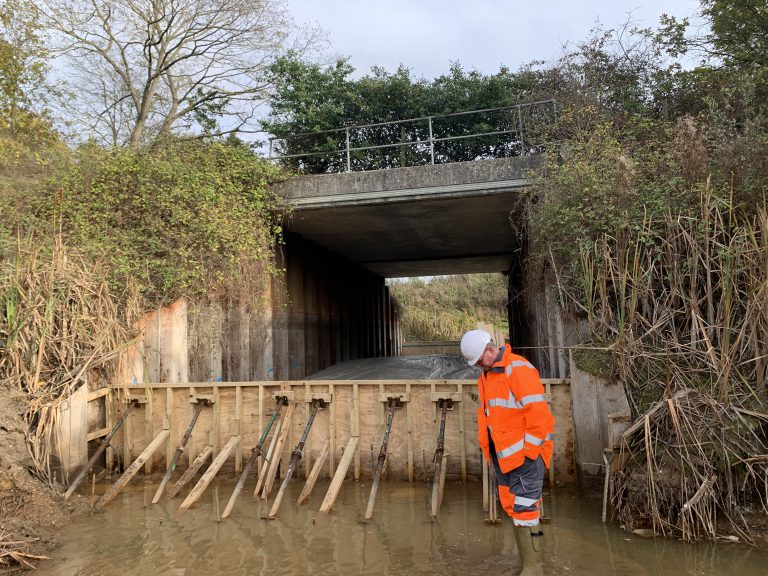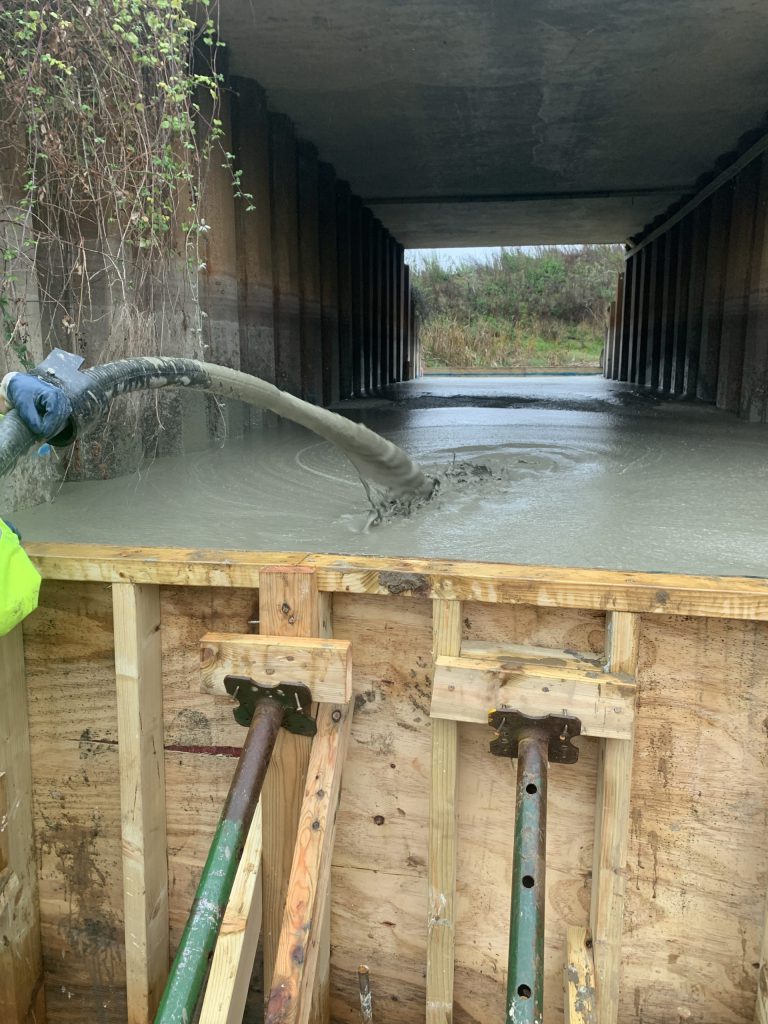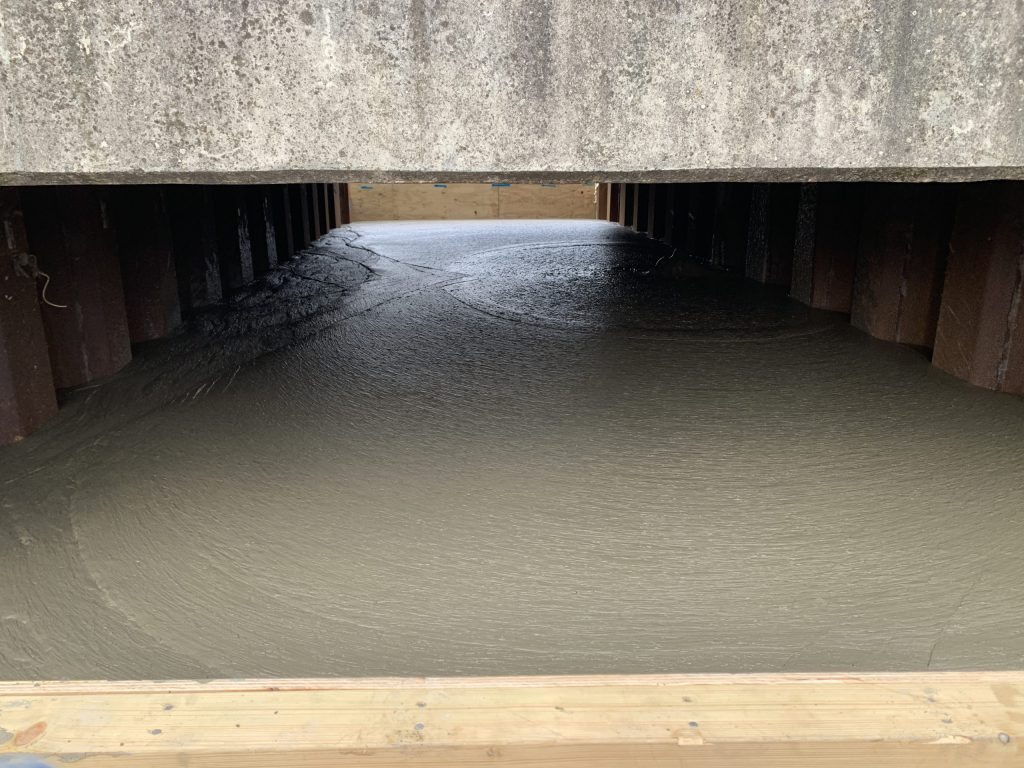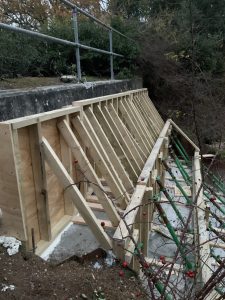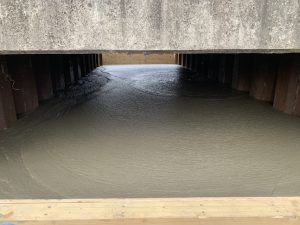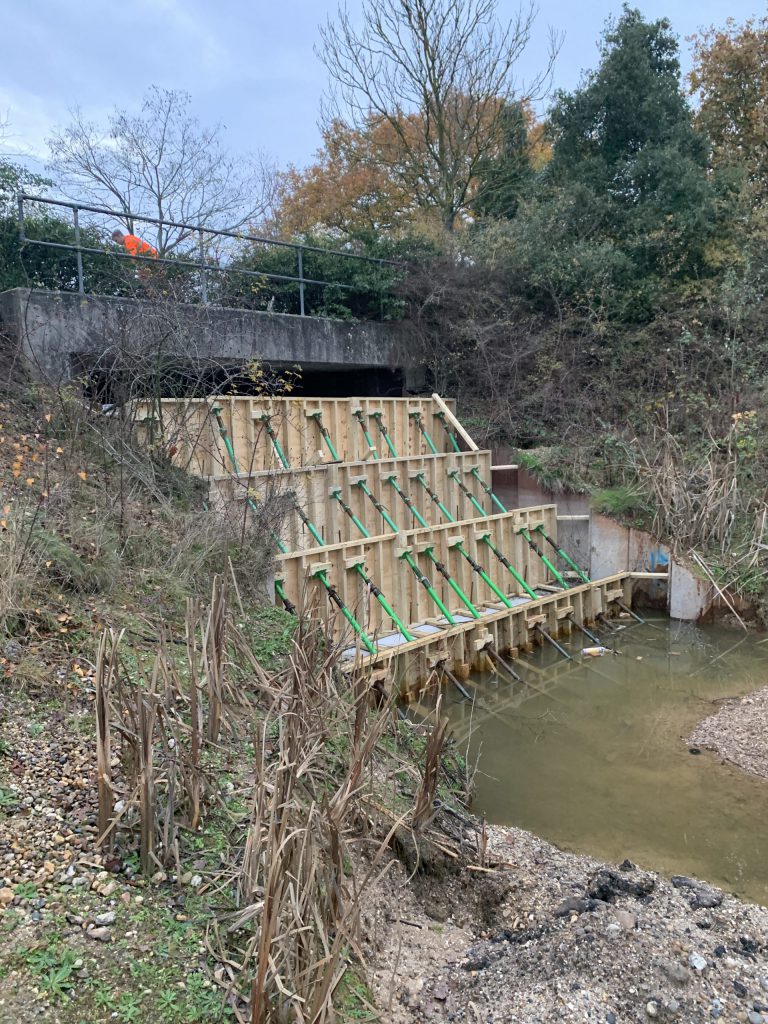
Foamed Concrete Bridge infill, Wivenhoe, Colchester
Case Study – Wivenhoe bridge
Propump placed over 550m3 of light weight foam concrete to fill a decomissioned bridge.
This mass void fill had to reach 4N/mm2 at 28 days yet be pumpable and fluid enough to produce a level material over a distance of 35m
Wivenhoe bridge infill case study
Wivenhoe Bridge Mass Infill, Colchester
| Strength Requirement: | 3.5 N/mm2 – 4 N/mm2 |
| Density Requirement: | 1000 kg/m3 |
| Volume Requirement | ~ 550m³ |
Scope of works:
The Client, Tarmac, had a requirement to infill an old road bridge with foamed concrete, Propump were required in infill the void in a layered and staggered approach, up to the flat soffit of the road deck above. The specification required a fluid and flowable mix that would self-level across the maximum length of 25 metres and needed to reach a target strength of 4N/mm2.
Background:
The underpass was used to link two parts of a quarry. It was originally created to allow site vehicles to transport materials from one side of a quarry to the other, allowing them to pass under the current arterial road. However, the quarry has since closed, and the bridge is no longer required. The requirements were for a solid and self-consolidating mix that would later be dressed in soil and remediated with shrubs and undergrowth.
The client originally tried to place some in house ‘Foam-Crete’ at 1800kg/m³ however they had significant problems with being able to pump the material. Their material did not flow and significantly impacted their programme of works. As such, Propump were called in as specialists to discuss a suitable material specification and method of works that would enable the infilling to commence without the requirements for multiple staged and smaller pours.
As specialists in manufacturing and placing foamed concrete, Propump have a wealth of knowledge and experience filling bridges, subways, and cattle creeps.
Method of works
The client had a pre-existing agreement with the council to core a series of holes in the road deck to prove the level of fill. The works were to infill the void under the bridge by stepping the material in by 1 metre each lift. Resulting in a pyramid of foamed concrete up to the underside of the soffit of the road deck.
The initial two layers would be poured from ground level and the subsequent 3 pours would be placed through core holes in the road surface. These core holes were a requirement by the council to ensure that the material had reached the soffit along the length of the structure. Other methods can allow for sacrificial pump lines fitted to the soffit, blocked off at the far end. material will vent out at the opposite end at a level higher than the soffit.
As a result, Propump placed some 500 m³ of P820 @ 1000kg/ m³ with a target strength of 4N, this was conducted in 4 x 1 m lifts with an additional 400mm lift that encapsulated the soffit.
Material was placed from a static line and was flowable enough to bring up both sides of the 25m x 6m void in a single lift with no additional
Foamed concrete was also used to fill right up to the soffit, utilising its free flowing properties and its self-consolidating nature. The material gave a complete fill purging air out to the open faces, very much in the same manner as a grout would typically be used.
Wivenhoe Bridge infill case study
More information
Propump Consultancy Services
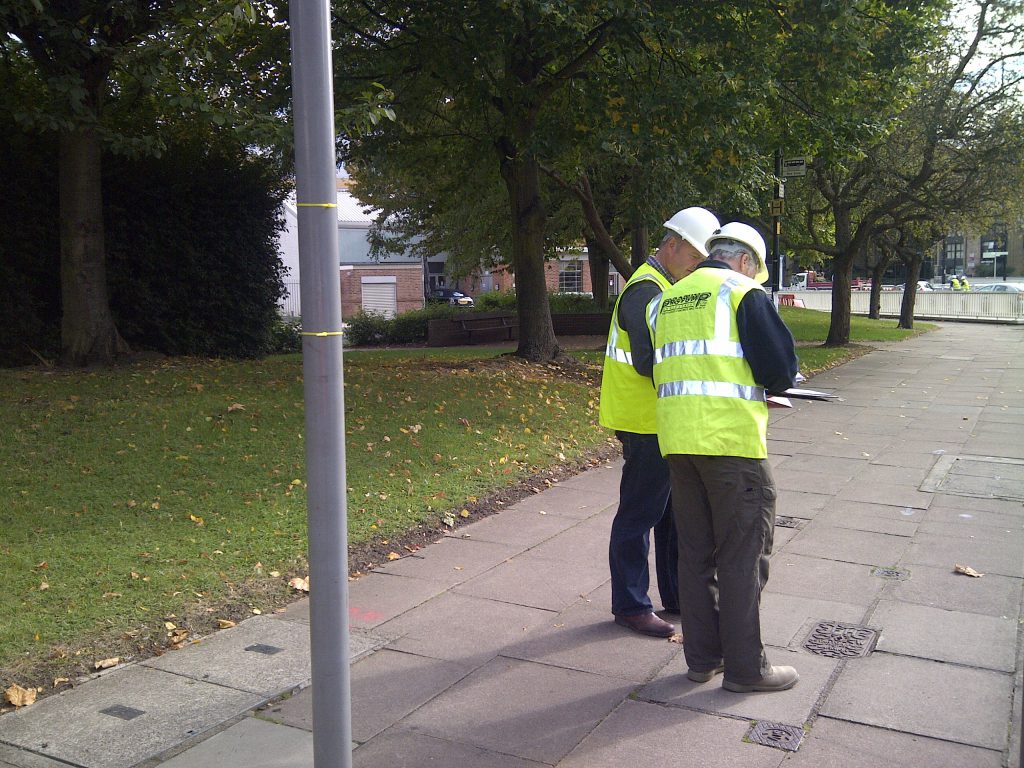
Propump news & articles
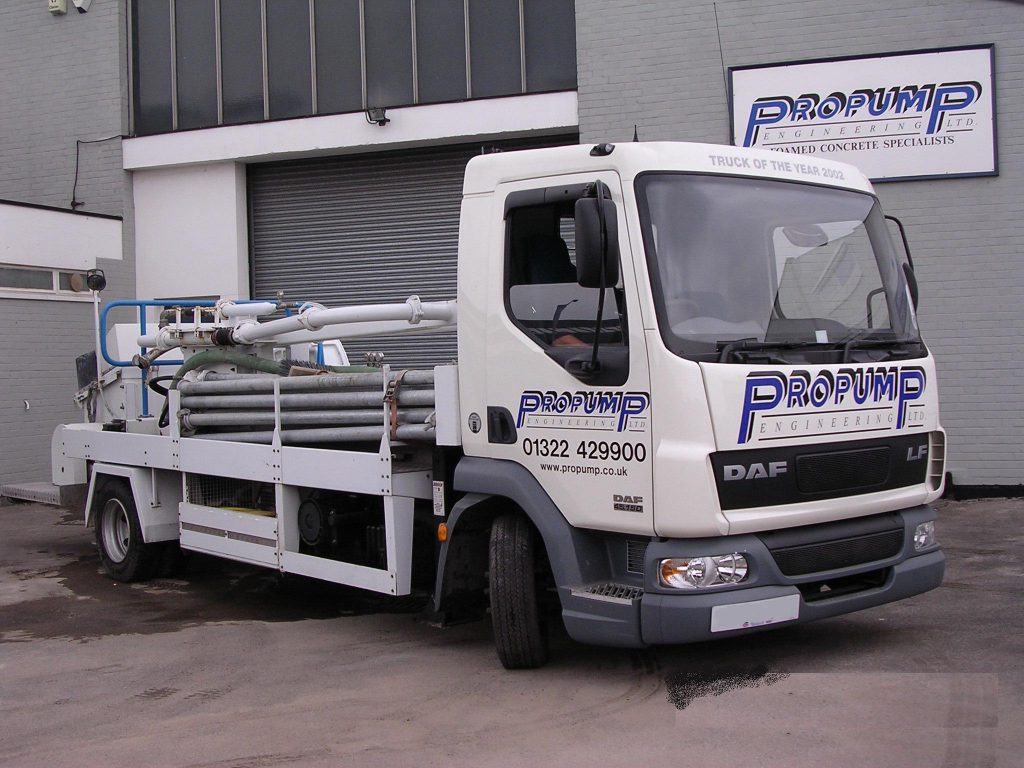
Why choose foamed concrete?
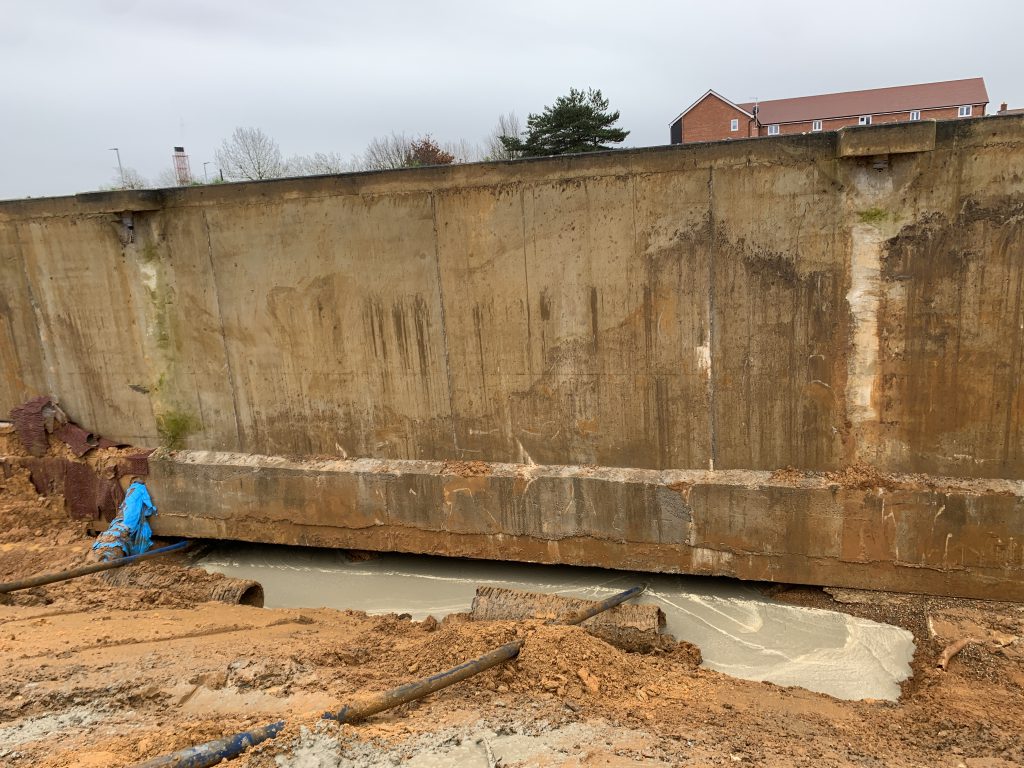
Projects by Propump





